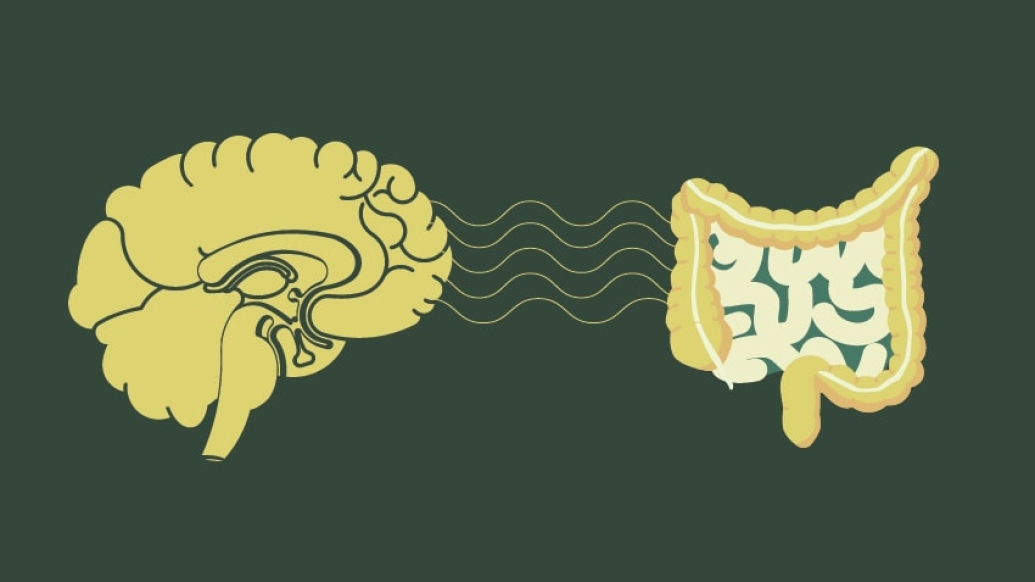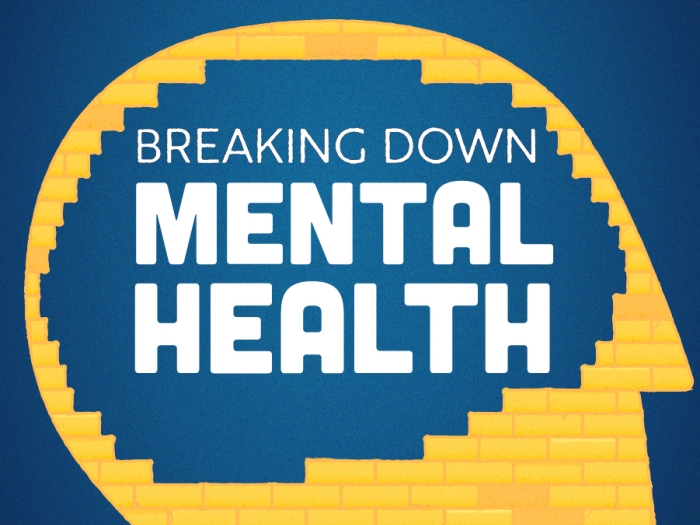Learn about the brain-gut connection, plus coping strategies including therapy, mindfulness and hypnosis from a Michigan Medicine psychologist.
7:00 AM
Author |

Your brain and your gut constantly communicate with each other.
MORE FROM MICHIGAN: Sign up for our weekly newsletter
And sometimes they overshare, says Michigan Medicine clinical psychologist Megan Riehl, PsyD., M.A.
That "oversharing" irritates the brains of patients with functional bowel disorders, including irritable bowel syndrome (IBS), where organs are free of structural abnormalities but problems such as cramping, diarrhea or constipation still occur.
Nerve endings along the pathway between the brain and the gut are extremely sensitive in these patients, Riehl says.
As a result, "their brains have a difficult time regulating during stressful periods and also during the process of digestion," says Riehl, also an assistant professor at the University of Michigan specializing in gastrointestinal disorders.
Sensitive foundation
Simple actions can have a deep effect on IBS patients.
"A person without IBS can eat pizza for lunch, go about the rest of their day working, perhaps have some bloating or gas but they are not bothered by it," Riehl says.
"But for somebody with IBS, even just a little bit of discomfort can be experienced at a lower pain threshold, so they are feeling it more intensely," she adds. "That sends signals back to the brain that say: 'Ouch, that's a problem.'"
In turn, more pain signals are sent down to the gut, amplifying the symptoms.
The phenomenon is called visceral hypersensitivity, or nerve sensitivity, in the digestive tract. No test exists to detect it.
High-stress cycles
Symptoms of a functional bowel disorder can be stressful enough. But with the brain working so much due to what's happening in the gut, anxiety and stress are heightened even more, Riehl says.
SEE ALSO: Got IBD? A Clinical Trial May Be Right for You
Sometimes, those patients fall into what she calls the GI stress cycle. Their brains mistakenly interpret a simple need to go to the bathroom in the grocery store as a catastrophic event, which engages the "fight or flight" response, especially if a bathroom is far away.
That can cause the GI tract to clench, tense and spasm, which worsens GI symptoms. It also leads to pain and fatalistic thinking — assuming, for example, that a person will have an accident in the middle of the store.
That's where Riehl, one of only a handful of GI psychologists across the nation, can help.
Therapeutic strategies
Riehl teaches several relaxation strategies to help patients cope. Those methods include deep breathing, muscle relaxation and gut-directed hypnosis.
In hypnosis, Riehl suggests paying less attention to the uncomfortable pains in their digestive tract, to reduce the perception of pain and to relinquish the control that GI stress has on their symptoms.
The practice has been so effective that she routinely uses gut-directed hypnotherapy with patients who have failed other medical treatment.
"Patients respond well and can do so rather quickly," Riehl says.
Another therapy involves arming patients with cognitive behavior concepts such as constructive self-talk and decatastrophizing.
"This teaches them to observe themselves having those unhelpful thoughts during times of discomfort or stress and realize that we can talk back to them and find alternative ways of thinking," Riehl says.
She also discusses the value of identifying a worst-case scenario (a bathroom accident, for instance) and having an action plan ready should it ever occur. Riehl reminds them they will cope and discover that while embarrassing, it won't be the end of the world.
Still, reaching that conclusion requires time and effort — often with professional guidance.
"This work is so gratifying because often in such a short period, anywhere from three to seven sessions, patients have such a dramatic improvement on symptoms they've sometimes had for their entire life," Riehl says.
Patients need to be seen by a Michigan Medicine gastroenterologist for a referral to the Behavioral Health Program. To schedule an appointment, call 888-229-7408.

Explore a variety of healthcare news & stories by visiting the Health Lab home page for more articles.

Department of Communication at Michigan Medicine
Want top health & research news weekly? Sign up for Health Lab’s newsletters today!





